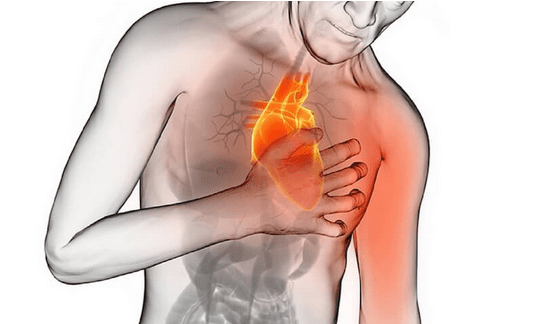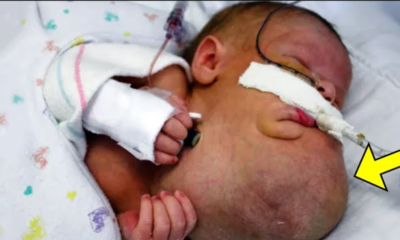Your heart is one of the most vital organs in your body. It pumps blood through your arteries and veins to deliver oxygen and nutrients to every cell. When something goes wrong with your heart, it can be a life-threatening emergency. One of the most serious heart conditions is a heart attack.
A heart attack occurs when the flow of blood to part of the heart muscle is blocked, usually by a buildup of plaque in the coronary arteries. This plaque is made up of fat, cholesterol, and other substances. If the blockage is not treated quickly, the part of the heart muscle supplied by that artery begins to die.
The good news is that your body often gives warning signs and symptoms before a heart attack happens. Paying attention to these signals can allow you to get medical help in time and prevent permanent heart damage or even death. Here are 9 potential signs that you may be having a heart attack:
1. Chest Pain or Discomfort

This is the most common heart attack symptom. Many people describe it as a feeling of pressure, squeezing, fullness, or pain in the center of the chest. It usually lasts for more than a few minutes or goes away and comes back. The pain or discomfort can spread to other areas like the shoulders, arms, back, neck, jaw, or stomach.
2. Shortness of Breath
People often have trouble catching their breath before or during a heart attack. You may feel like you just ran a long distance even though you are resting. This shortness of breath often occurs along with chest discomfort.
3. Cold Sweat
Breaking out in a cold sweat for no obvious reason can signal that you are having a heart attack. The skin may feel clammy or you may notice moisture on your face or body. Nausea and vomiting can also occur.
4. Fatigue

Some people experience excessive tiredness, weakness, or lethargy days or weeks before a heart attack. Simple activities may suddenly feel exhausting. This can be an early warning sign that your heart isn’t getting enough blood and oxygen.
5. Lightheadedness or Dizziness
If your heart can’t pump blood effectively, you may feel lightheaded, dizzy, or faint. Low blood pressure and lack of oxygen reaching your brain can cause this symptom. READ FULL STORY HERE>>>CLICK HERE TO CONTINUE READING>>>
6. Pain Radiating to Arm(s)
Many people experience pain that travels down one or both arms during a heart attack. This discomfort usually starts from the chest. It can also include tingling, aching, or numbness in the arms, shoulders, upper back, neck, or jaw.
7. Indigestion or Heartburn
People sometimes mistake heart attack pain for indigestion, heartburn, or stomach discomfort. This is more common in women. If you have persistent nausea, stomach pain, or discomfort and it feels different from your usual indigestion, it could be a sign that you are having a heart attack.
8. Anxiety or Panic Attack
Some people report feeling a sense of impending doom or anxiety during a heart attack. These feelings of terror can occur along with other heart attack symptoms. General unease or panic may start well before the chest pain begins.
9. Cough or Wheezing

If your heart isn’t pumping well, fluid can build up in your lungs, causing coughing, wheezing, or shortness of breath that doesn’t go away with treatment for asthma or bronchitis. In some cases, coughing may be the only symptom.
It’s important to remember that each person may experience different symptoms during a heart attack. For example, many women do not get the classic chest pain associated with heart attacks. Their symptoms are more likely to be fatigue, shortness of breath, nausea, and pain between the shoulder blades.
Also, the more risk factors you have for heart disease, the more subtle your heart attack symptoms may be. Risk factors include smoking, high blood pressure, high cholesterol, diabetes, obesity, lack of exercise, family history, and older age.
If you notice any of the symptoms above and they are severe, come on suddenly, or last for more than a few minutes, it is crucial to call emergency medical services or have someone drive you to the hospital right away. Don’t wait to see if the symptoms go away – getting care within the first hour can save your life and prevent permanent heart damage.
Even if you aren’t sure your symptoms are from a heart attack, it’s best to get checked out. Medical personnel can run tests to see if you’re having a heart attack or other life-threatening condition and give you proper treatment right away.
Heart disease is a leading cause of death worldwide. But being aware of the warning signs and acting quickly when they occur can lead to better outcomes and increase your chances of surviving a heart attack. Listen to your body, and don’t ignore even mild symptoms. Getting prompt treatment could save your life.


 SPORTS10 months ago
SPORTS10 months ago
 IN-THE-NEWS11 months ago
IN-THE-NEWS11 months ago
 METRO7 months ago
METRO7 months ago
 SPORTS10 months ago
SPORTS10 months ago
 SPORTS10 months ago
SPORTS10 months ago
 IN-THE-NEWS11 months ago
IN-THE-NEWS11 months ago
 METRO6 months ago
METRO6 months ago
 METRO10 months ago
METRO10 months ago





